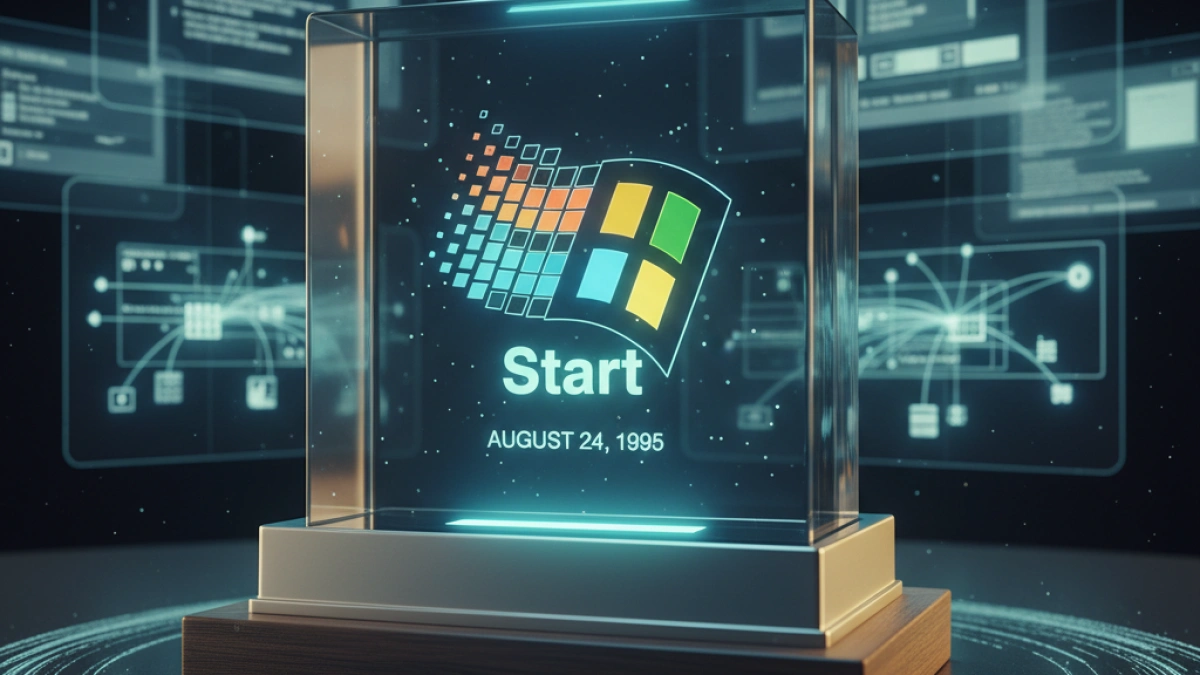August 24, 1995 marked a milestone in the history of technology with the launch of Windows 95 by Microsoft. This operating system not only transformed how users interacted with their computers, but also revolutionized the way technology products were marketed. As we commemorate the 30th anniversary of this launch, it's interesting to reflect on its lasting impact on the industry.
An Event That Made Its Mark
The presentation of Windows 95 was a remarkable spectacle that combined technology and entertainment. The company orchestrated a monumental event in Redmond, Washington, where figures like Bill Gates and Steve Ballmer became the main protagonists. The atmosphere was reminiscent of a carnival, making many attendees, including journalists and consumers, feel part of a historic moment.
Microsoft had invested significantly in the advertising of this operating system, seeking to enhance its relevance against competitors like Apple. Despite hiring popular host Jay Leno as the master of ceremonies and featuring the famous song "Start Me Up" by The Rolling Stones, many critics wondered whether the company would achieve Apple’s "coolness," which had launched its Macintosh more than a decade earlier.
The Arrival of a New Era
Windows 95 represented a significant change from previous versions, which had been harshly criticized for their appearance and functionality. With this new version, Microsoft introduced the iconic "Start" button, which made it easier for users to access their programs and files. This shift not only catapulted Windows as the leading platform in personal computing but also marked the beginning of Apple’s temporary decline in the market.
At the time of the launch, thousands of people lined up in stores around the world to purchase a copy of the operating system, priced at $99. This phenomenon of mass sales was a precursor to what would later be seen with Apple product launches. Windows 95 not only attracted media attention but also became a sought-after product among consumers, helping to establish a solid user base for the company.
The Legacy of Windows 95
The impact of Windows 95 was so profound that, just a few years later, the Internet expanded rapidly, and Microsoft had to adapt to this new environment by launching Internet Explorer to compete in an online world. This development altered how consumers accessed information and communicated, leading to the rise of the digital era.
Over the years, technology launch events have evolved, but few have reached the magnitude of Windows 95. Today's presentations may lack the same sense of community and excitement, as for many, they have become just another event in an endless commercial cycle.
Reflections on the 30th Anniversary Celebration
The 30th anniversary of the launch of Windows 95 is an opportunity to reflect not only on its success but also on the direction technology has taken since then. The contemporary era, filled with significant advances and rapid changes, resonates with nostalgia for those times when simply switching operating systems was a major event.
The recognition and analysis of this event should also extend to the lessons it offers about marketing and consumer engagement. Microsoft's ability to attract a massive audience and change the way people interact with technology remains an example of how aligned innovation and strategy can lead to successful outcomes.
Conclusion
In conclusion, the launch of Windows 95 was not just the introduction of an operating system; it was a cultural event that redefined people's relationship with computing. Three decades later, its legacy endures and continues to influence how companies design, market, and sell their technology products. For those who experienced the era of Windows 95, there is a sense of nostalgia and recognition that, undoubtedly, this launch changed the digital landscape.
For more stories about the evolution of technology and its milestones, feel free to keep reading on my blog.




















